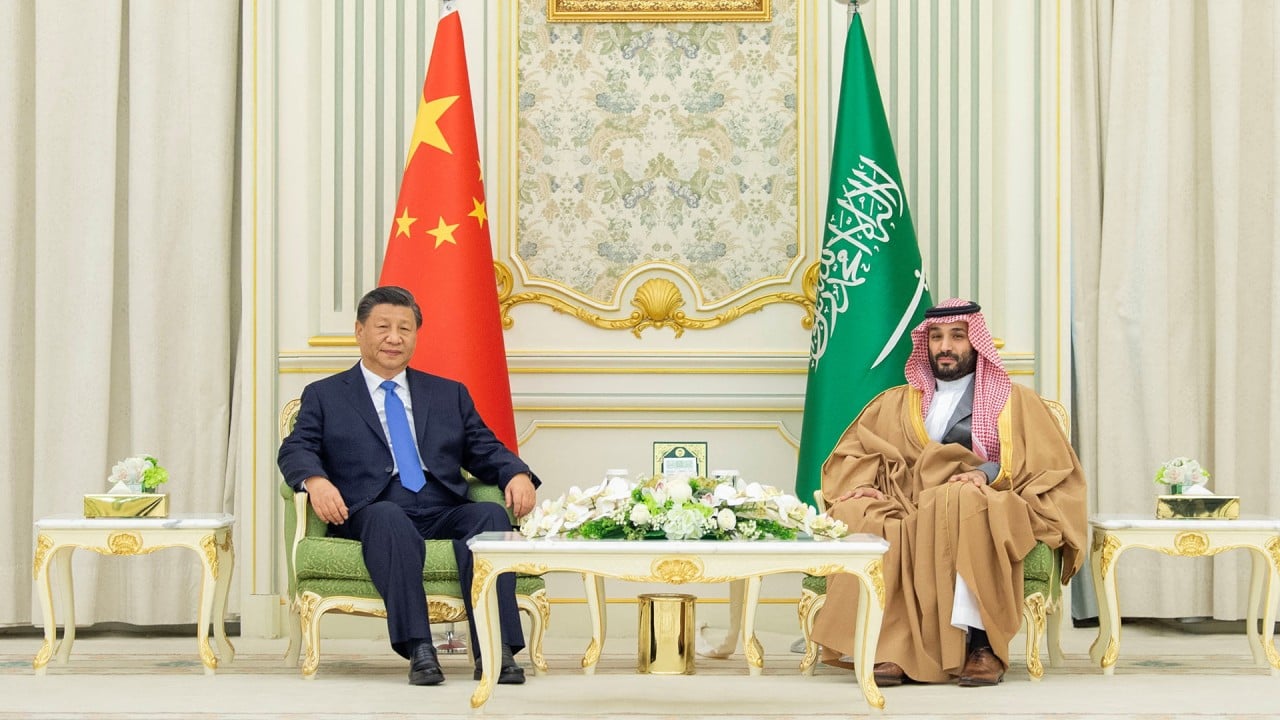
‘Saudi priorities’ steering science and tech cooperation with China, report says
- Nations are working together more but it is born out of Saudi Arabia’s push to boost its technology sector, according to Washington think tank
- Despite the growing ties with China there is a strong preference among Saudi elites to work with the West on science and tech, it says
“Saudi Arabia’s cooperation with China on technological and scientific innovation is on the rise – and it is Saudi priorities that are steering the relationship,” the Washington-based think tank said in the report released on Tuesday.
But according to the think tank, the increasing tech cooperation between the two countries is born out of Saudi Arabia’s push to boost its technology sector, and it said China served as an actor for Saudi Arabia to realise its national priorities.
Saudi Arabia has long sought to position itself as a global science leader as it accumulated huge wealth through its oil, the report said, pointing to its Vision 2030 project launched in 2016 to diversify away from oil.
The nation’s GDP dedicated to research and development in 2020 was more than eight times the size it was two decades ago, according to Unesco data.
Since Xi’s first state visit to Saudi Arabia in 2016 – followed by a visit to China by Crown Prince Mohammed bin Salman – a coordination committee has been set up to accelerate and expand technology exchanges. The report also noted that Saudi Arabia had signed an agreement with China’s top economic planner to foster engagement in technology.
A piece of cake? China-Saudi Arabia embrace ties, but it’s not all sweet success
The official partnership framework has also paved the way for Chinese private companies to enter the Saudi market, which has seen Huawei Technologies become a major player in the country’s 5G networks.
The report said cooperation had been centred around localisation. That includes tech transfers that benefit locals, and Chinese companies being required to hire a certain percentage of Saudi nationals.
It said there were signs of growth in the amount of capital being invested in science and technology between the two countries, but it is driven by Saudi Arabia’s Public Investment Fund, or PIF – one of the largest sovereign wealth funds in the world.

And despite the growing ties with China, there remains a strong preference among Saudi elites to work with the West on science and tech, according to the report. It said more than 60 per cent of the international collaborations in Saudi Arabia’s academic institutions were with Western institutions.
It noted that the King Abdulaziz City for Science and Technology’s programme for tech leaders – which aims to nurture partnerships with other top institutes around the world – does not include any Chinese universities. The report also said that while a few thousand Saudi students had gone to China to study science in the past decade through government-led programmes, most Saudi scientists had been trained in the West.
The research was sponsored by the Ford Foundation, a non-profit based in New York.


